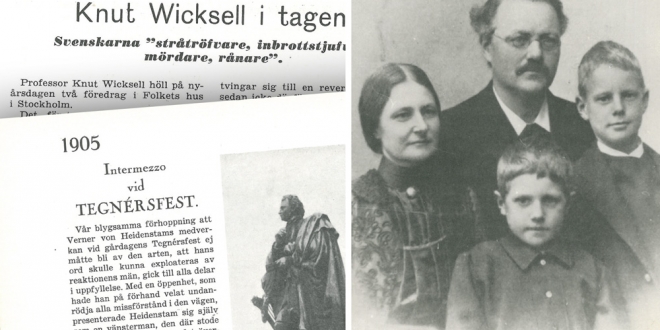Most parties we only remember for a few days, others our whole lives. But which of all parties in Lund has really been the most memorable? Lundagård went to the bottom of this in the archives at the AF building.
By: Filip Rydén Translation: Carl-William Ersgård
In 1905, Sweden was in crisis, the union with Norway about to crumble. Debates in Sweden were often harsh, and the question of war was not unthinkable. In preparation for this, Norway had built forts all along the Swedish border, which only upset the Swedes more.
In the midst of this turmoil, the traditional Tegnér Party was afoot, a type of novisch party for all new students at the universities. Already before the party, the risk of scandal and intensive debate was brought up, and all speakers were instructed to act calmly and show each other respect.
At first, everything went well. In the newspaper Arbetet’s summary of the day, poet Verner von Heidenstam began by explaining that he “was as far left as humanly possible”, but still felt compelled to keep a civil tone for the evening. His antagonists returned the favour.
But everything would change when professor Knut Wicksell, whose partner was Norwegian, took place in the lectern. A deathly silence followed. Wicksell began speaking of a dream he had had, about the Norwegian border forts. After that, Sydsvenskan reports, one could hear no more of the speech over the conundrum of whistling and patriotic songs.
However, Wicksell refused to leave the lectern, despite growing resent among the audience. The chairperson at the Student Union then felt compelled to threaten with his immediate resignation if the premises were not immediately evacuated , probably driven by a fear that the professor would be murdered at the spot.
Only a few followers remained while professor Wicksell finished his speech for an empty and unlit room. The next day, his actions were more or less unanimously condemned by right and left wing press.
But despite nationalistic currents, there was a peaceful separation of the union, which sat a global precedence. At the 100th anniversary of the dissolvement, Knut Wicksell was portrayed as an important voice for peace. Thus, the Tegnér Party of 1905 can be said to have had a great impact on Sweden and the world.






